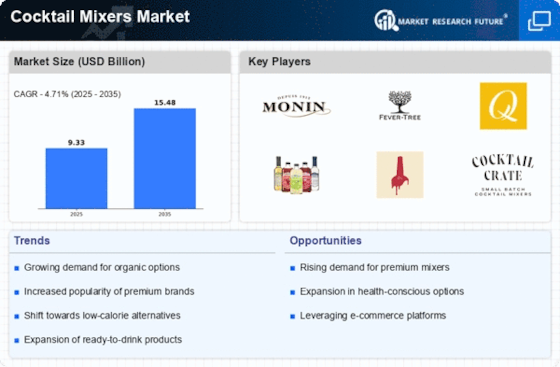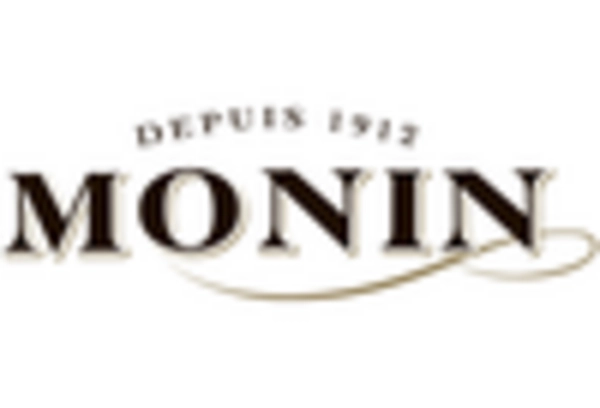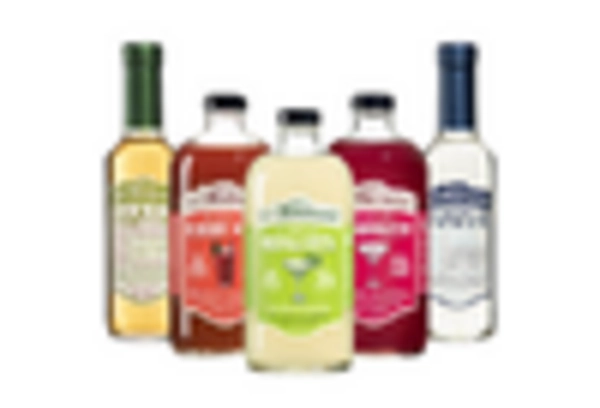Market Analysis
In-depth Analysis of Cocktail Mixers Market Industry Landscape
The global tonic water market is poised for growth, propelled by a continuous wave of product innovation driven by substantial investments in research and development by major industry players. Manufacturers are actively engaged in optimizing ingredients, substituting natural sweeteners for sugar, and venturing into uncharted territories of flavors and variants to align with ever-evolving consumer preferences. The demand for tonic water is intricately tied to the rising sophistication in consumer taste and preference, particularly observable among Millennials and Generation Z, who exhibit a strong affinity for premium brands.
Major players in the tonic water market, including industry leaders like Fever-Tree and Fentimans, are at the forefront of this innovation, offering premium tonic water variants infused with herbal elements. This premiumization trend reflects a broader shift in consumer behavior, where individuals are increasingly drawn to unique and high-quality products that provide an elevated drinking experience. The infusion of herbal elements not only enhances the flavor profile but also contributes to the perceived health benefits, aligning with the wellness-conscious choices of modern consumers.
Furthermore, the market is witnessing an upsurge in brands emphasizing the use of organic, natural, and authentic ingredients. This is driven by a growing consumer consciousness regarding the ethical practices of brands and a heightened awareness of the ingredients they consume. The shift towards natural and authentic components reflects a broader trend in the food and beverage industry, where consumers are seeking transparency, sustainability, and a connection to the origins of the products they choose.
In essence, the growth of the tonic water market is intricately tied to two interrelated factors: product innovation and consumer consciousness. The continuous quest for differentiation and unique offerings is pushing manufacturers to explore new dimensions of taste and functionality. As consumers become increasingly discerning, the ability to cater to diverse preferences and offer a range of premium and health-conscious options becomes paramount.
A notable example of a company leading by example in this paradigm is Fever-Tree. Beyond just product innovation, Fever-Tree has launched various initiatives and blueprints aimed at reducing its carbon footprint, combating malaria, minimizing waste, and promoting biodiversity. These initiatives not only align with the growing trend of corporate social responsibility but also resonate with consumers who are increasingly seeking brands with a commitment to sustainability and ethical practices. Fever-Tree's portfolio, featuring a variety of slimline tonics made with premium ingredients, reflects a strategic alignment with the preferences of contemporary consumers, ticking multiple boxes that resonate with modern values.
Despite the positive trajectory of the tonic water market, it's noteworthy that even industry leaders such as Fever-Tree have faced challenges, as evidenced by a drop in their share price over the past year. The reasons behind such fluctuations can be multifaceted, influenced by market dynamics, economic factors, and various external forces. These fluctuations underscore the importance of agility and adaptability in the face of a dynamic market landscape, where even successful companies must navigate uncertainties and respond to evolving consumer expectations.


















Leave a Comment